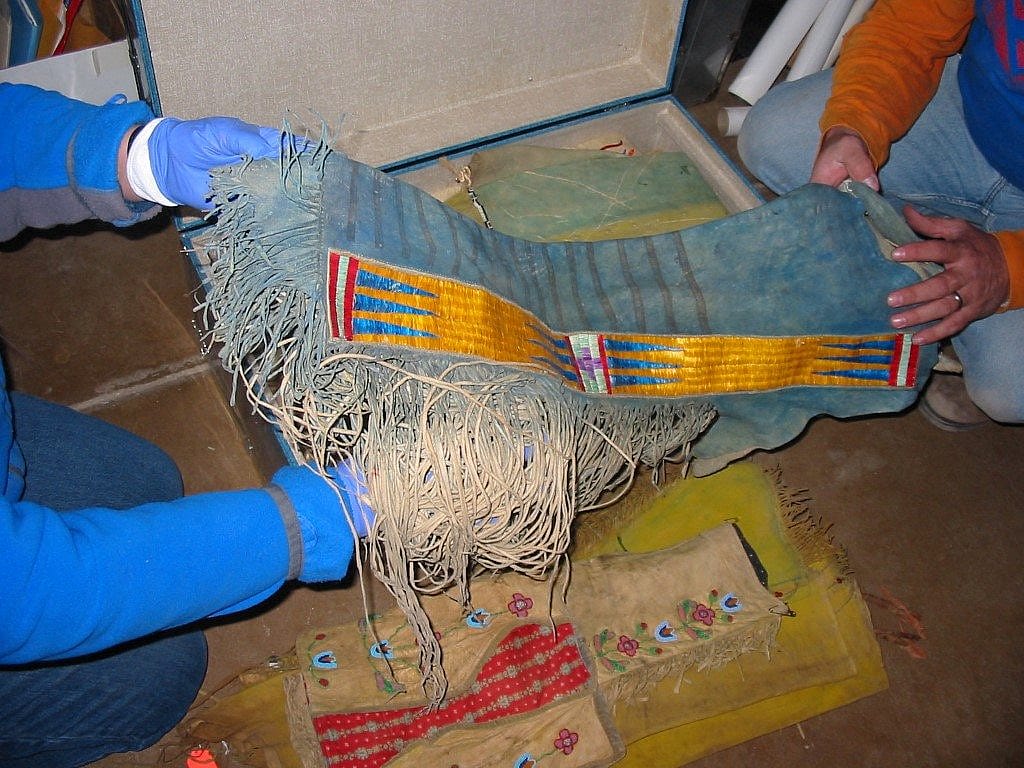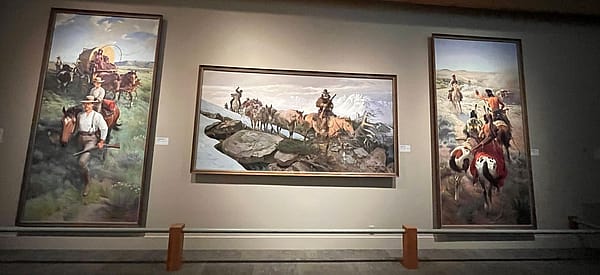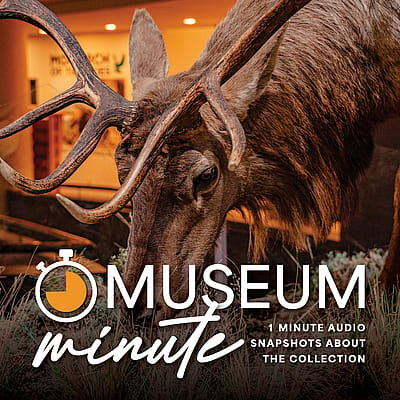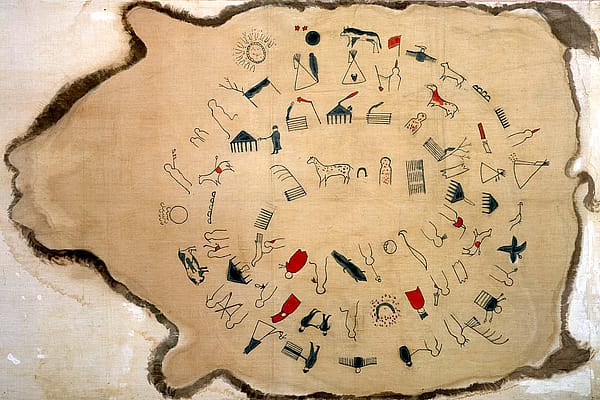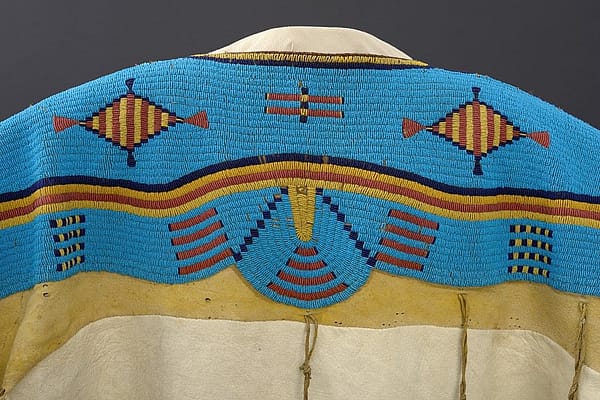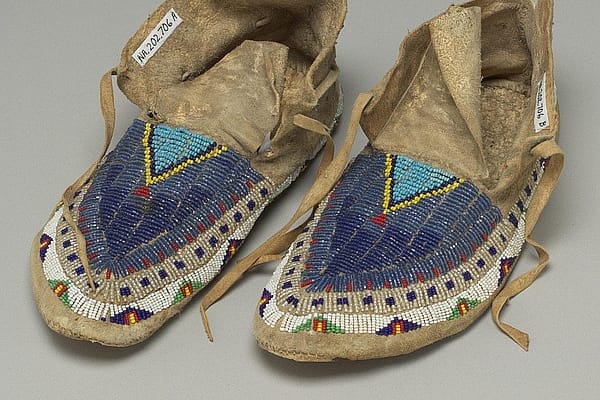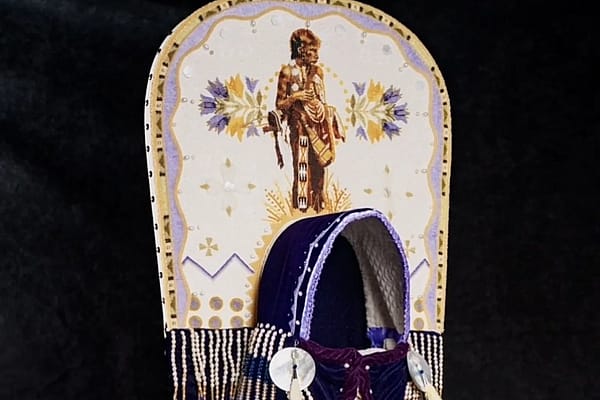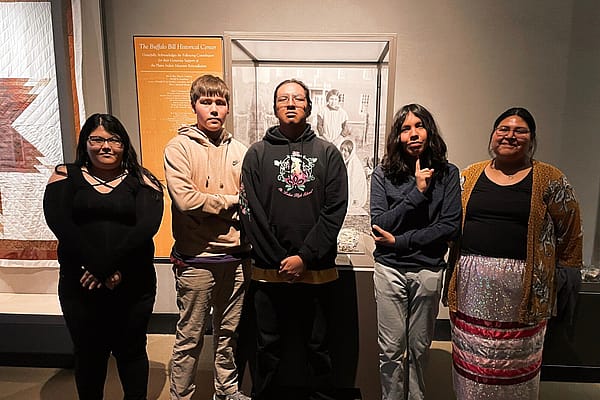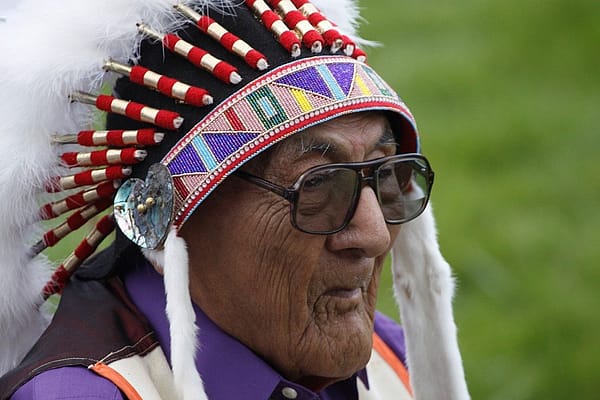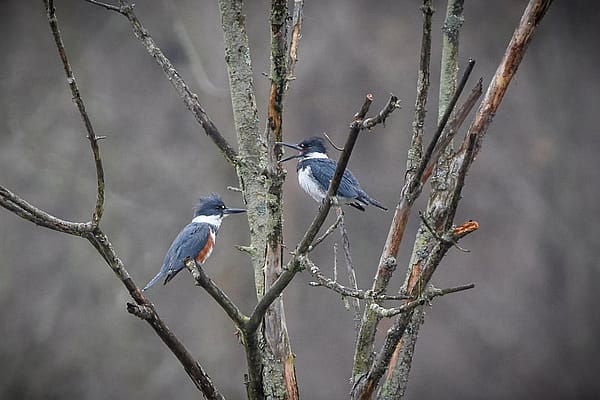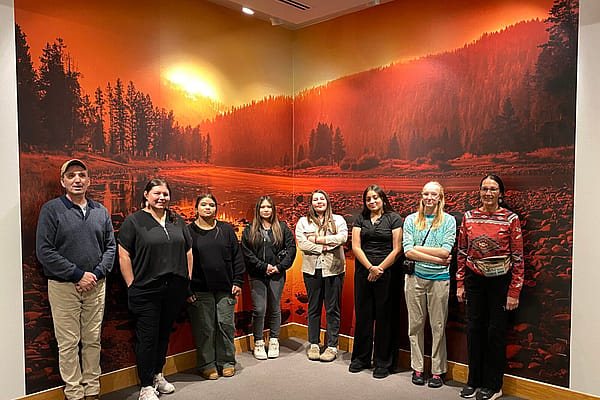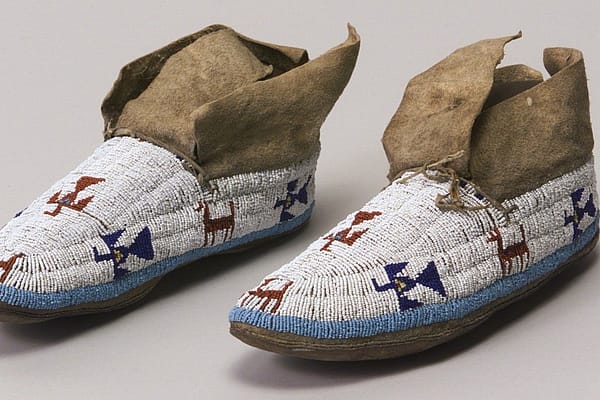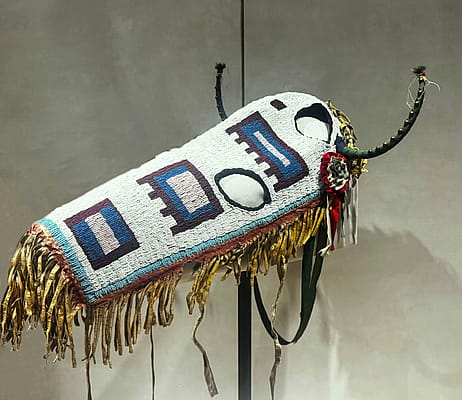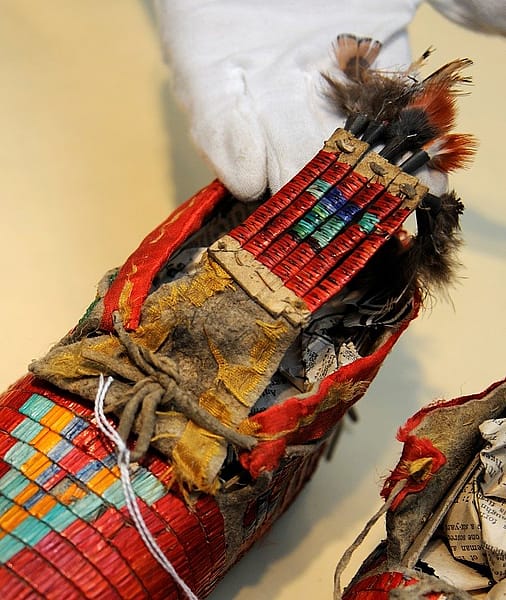
So you’ve got an Indian object…
The Plains Indian Museum of the Buffalo Bill Center of the West receives countless inquiries each year about items in personal collections. Our visitors, whether virtual or not, are an inquiring bunch with many treasures and great questions. Some of this interest in historical items may come from the popularity of Antiques Road Show, a PBS series now in its 19th season, known for providing on-the-spot information and values at its events around the nation. While we aren’t the Antiques Road Show, we try to provide resources to help answer our visitors’ questions. We hope these guidelines for historic and contemporary Indian items will help with visitors’ questions regarding their personal collections:
- Leave it at home! We can work from a photograph (e-mailed or snail mailed to us). Your treasure is vulnerable to heat, breakage, humidity changes, theft, and other hazards even on short trips.
- If you are interested in a donation, please send an e-mail to [email protected] and your inquiry will be forwarded to the appropriate curator or the library to discuss and answer your questions.
- Do not ship or drop off items unless you have made prior arrangements. We will not accept unexpected or unknown packages, which will be returned unopened to the sender.
- We strongly encourage you to try to start your own research—you might find the answer you are looking for. Here is a guideline: Researching American Indian Objects or Subject Matter and our Online Collections database is a great resource.
- Please be patient, we receive many inquiries daily and respond to them as we have time.
- We do not perform appraisals, estimates, guesstimates or any type of monetary valuation. The International Society of Appraisers can inform you of the process and qualified appraisers.
- Be aware of the laws that apply to American Indian objects, eagle feathers, and archaeological materials. These include the Indian Arts and Craft Act, the Bald and Golden Eagle Feather Act and Migratory Bird Treaty Act, and Archaeological Resources Protection Act, and others.
- Archaeology buffs: we don’t have an archaeologist on staff, but suggest that you contact a college or university near you with an archaeology department, or your state or federal Forest Service, State Park, or Bureau of Land Management (BLM) office.
- If you wish to pursue in-depth scholarly research at the Center, please review and fill out the following application: Collections Use and Research Agreement.
We want to encourage everyone to enjoy their passion for collecting with a word of caution—another element of the Antiques Road Show is the glorious tales of items that someone found in a dumpster, or bought at a garage sale for $5, that turn out to be worth much, much, more. For every one of these finds there are millions of items that are not quite as exciting or valuable. People collect for many reasons: personal enjoyment, investment, preservation, family history, as a souvenir, etc. Since a collector’s taste is so personal, the value of an object is not always related to its monetary value. It is important to be a knowledgeable collector and either understand and research what you are acquiring, or acknowledge that there is a risk in collecting the unknown or for sentimental value. We often tell people “If it looks new, feels new, and smells new then it probably is new,” and “Does it seems too good to be true? Well, then…” Remember, too, that replicas and reproductions are common and can fool even the savviest collectors. “Antiquing” or “aging” items or making composite objects out of old parts and materials is another frequent practice.
Don’t be afraid to ask for some history about the object (beware of “old” tags or inscribed names on an item) and if they don’t have a firm history on the item, then it’s up to you to try and figure out what you are acquiring. While we cannot give you advice on whether or not to collect or purchase items, the resources above can get you started on research and hopefully lead to some fascinating discoveries along the way.
Written By
Rebecca West
Named as the Center of the West's new Executive Director in April 2021, Rebecca West has served as Curator of Plains Indian Cultures, as well as the Collier-Read Director of Curatorial, Education, and Museum Services. Rebecca has worked with the people, objects, ideas, and programs that define the Plains Indian Museum at the Buffalo Bill Center of the West.

